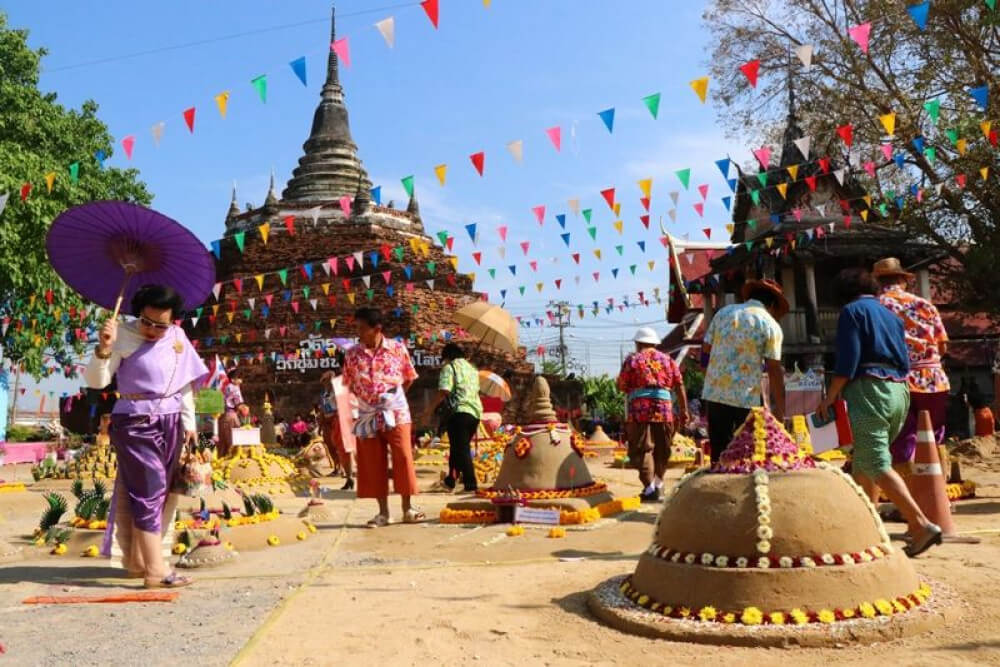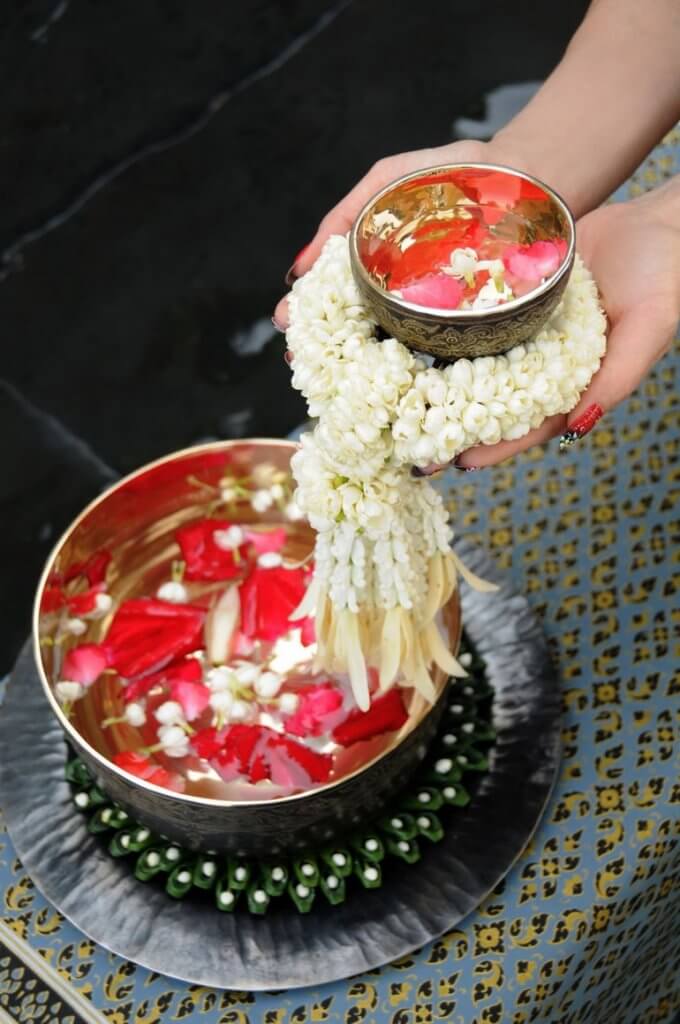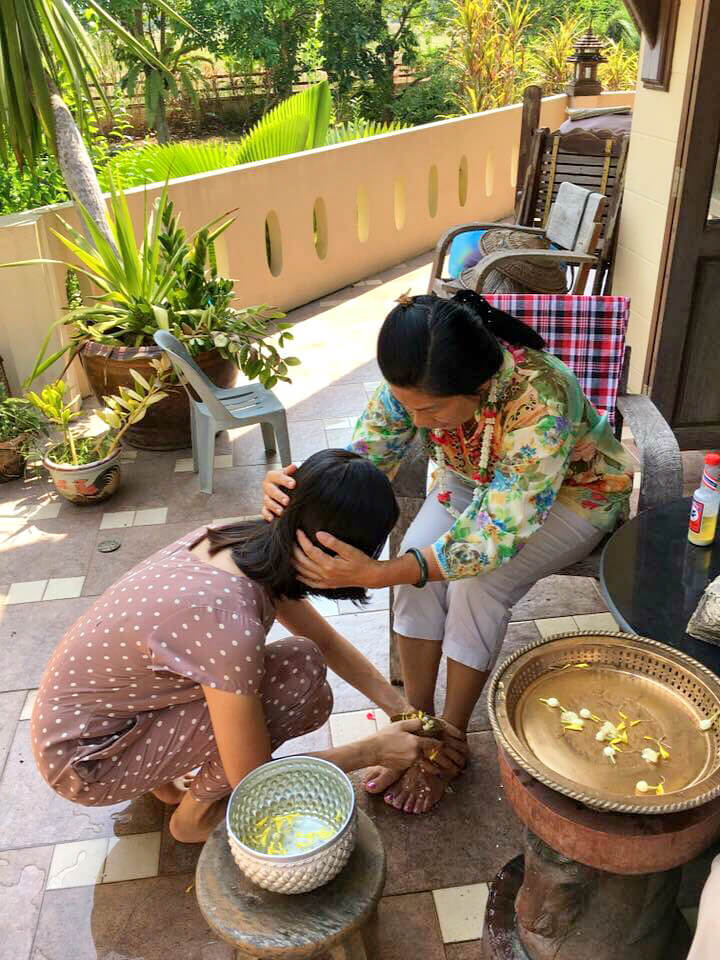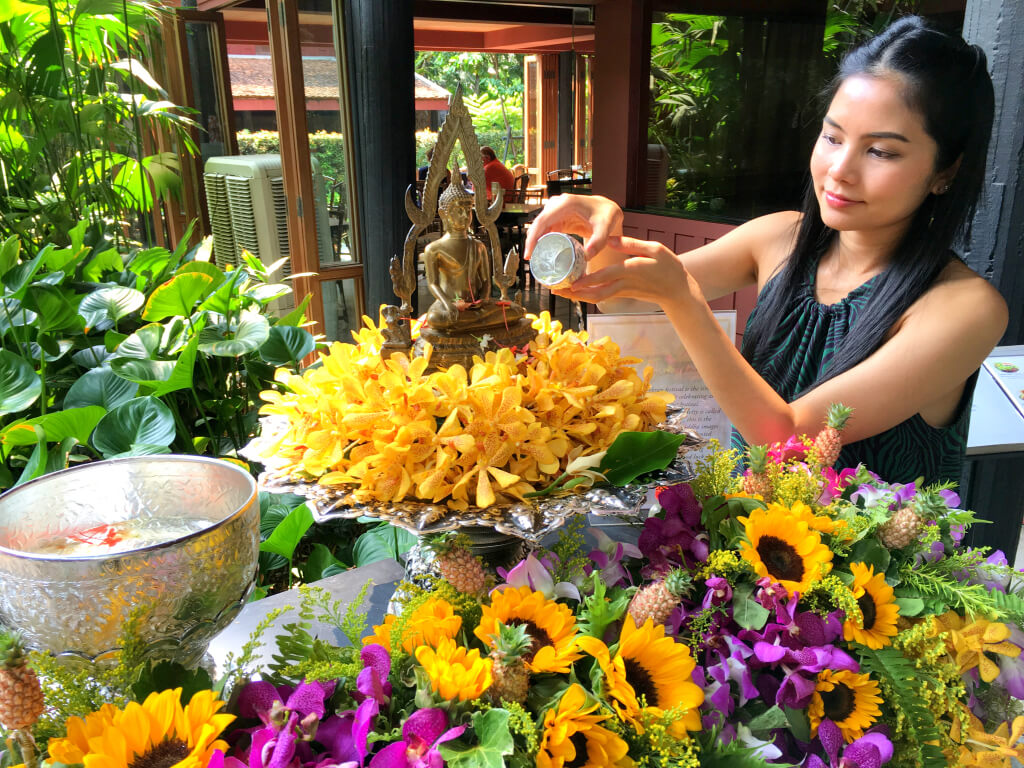Songkran (Thai: สงกรานต์) is a traditional Thai New Year festival where people enjoy themselves by throwing water at each other.
In Sanskrit, the word Songkran means ‘to pass’ or ‘move into’ and indicates the passing of the sun, moon and other planets into a new zodiac orbit.
Songkran is celebrated on April 13th every year. If you are in Thailand, you would find yourself swept up in festivities for three, five or even 10 days, depending on your specific location in the country.
The original purpose of Songkran festival is to bless others through water. Water symbolizes the cleansing of bad luck and misfortune among the Thais and getting splashed signifies a brand new beginning.
Here is how Thai people traditionally celebrate the Thai New Year;
On the first day of Songkran, which is a day to honour the elderly, an old custom called Rod Nam Dum Hua (รดน้ำดำหัว) takes place. This ritual involves young people pouring rose and jasmine scented water into the palms or feet of parents or wise elders as a signs of humility and to ask for their blessings.
It says that รดน้ำดำหัว /rót náam dam hŭa/ is an ancient custom from Northern Thailand. Traditionally in the North Rod Nam Dum Hua was used to refer to ‘ask for forgiveness and blessing’, รดน้ำ Rod Nam was an actual whole-body bathing and ดำหัว Dam Hua is Lanna language means to ‘wash hair’ by using kaffir lime leaves. Later on this custom was spread to other regions in Thailand. Apart from asking for blessing, it is also believed to wash away bad things in life and welcome good fortune.
The second day of Songkran is dedicated to families and officially known as National Family Day (วันครอบครัวแห่งชาติ). Families get together to spend quality time together. Children will also prepare rose and jasmine scented water to wash parents’ feet and offer them a flower garland, then the parents will give blessing to the children.
To the largely Buddhist population of Thailand, Songkran is also a time for temple visits and religious rituals. Bathing the Buddha which is called “สรงน้ำพระ Song Nam Phra” is an essential ceremony where devout Buddhists gently pouring scented water over the Buddha images (พระพุทธรูป Phra Phutharup) at home or at the temple. It is believed that doing this will bring good fortune and prosperity for the New Year. Songkran is also seen as a day for spring cleaning and many Thais take the opportunity to get their houses spic and span for the New Year.
Some Thai people make merit by building small pagodas from sand on the ground in temples. They believe that every time we visit temples, we normally go out with some sand beneath our shoes. Therefore, Songkran is the time to bring sand back to temples. This old custom is called ก่อเจดีย์ทราย /gàw jay-dii saai/.

In Many parts of Thailand, Songkran is celebrated with grand procession, beauty contests (Miss Songkran contest เทพีสงกรานต์), food fairs, boat races, cultural games and firework displays.



I love the Thai way in celebration with love, respect and kindness.
I like kru mod
Kop kun ka 🙂
Everything that is done based on tradition is really a beautiful thing to observe. Liked this article. Heart touching seeing the pics. Nice one